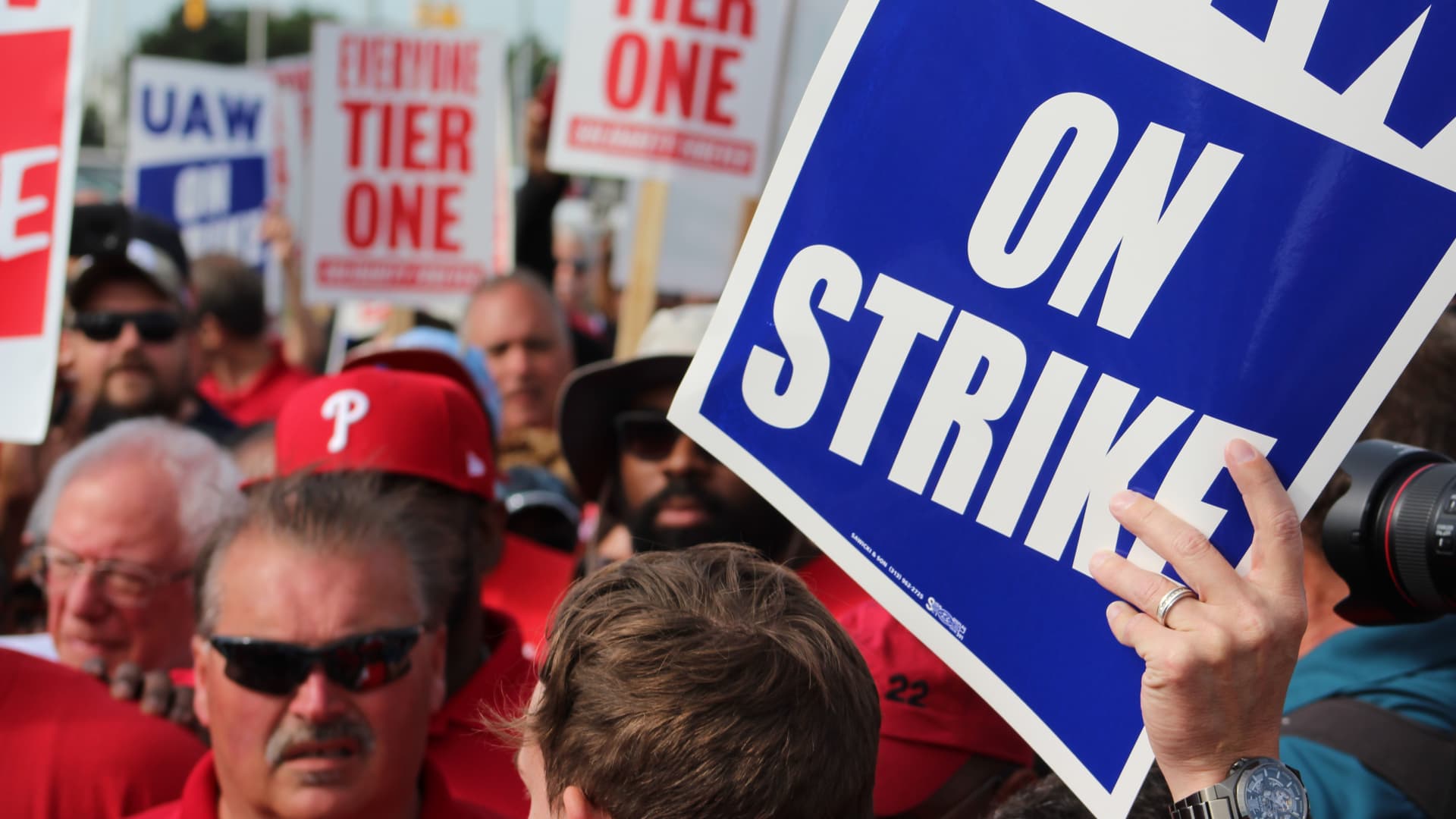United Auto Workers members on strike picket outside General Motors’ Detroit-Hamtramck Assembly plant in Detroit with Sen. Bernie Sanders, of Vermont, far left, Sept. 25, 2019.
Michael Wayland | CNBC
DETROIT – The potential strike by the United Auto Workers (UAW) union against Detroit’s Big Three automakers could have a significant economic impact, amounting to billions of dollars, according to a report released on Thursday.
The report, conducted by Anderson Economic Group (AEG), states that if nearly 150,000 UAW workers at General Motors, Ford Motor, and Stellantis decide to strike when their current labor contracts expire, the resulting work stoppage would cause economic losses exceeding $5 billion after just 10 days.
AEG estimates the total economic loss by considering the potential damages to UAW workers, the manufacturers, and the broader auto industry if tentative agreements are not reached before the contracts expire on September 14 at 11:59 p.m. ET.
“Consumer and dealer losses are typically somewhat insulated in the event of a very short strike,” explains Tyler Theile, Vice President at AEG. “However, with current inventories hovering around only 55 days, the industry looks different than it did during the last UAW strike.”
In 2019, a breakdown in negotiations between the Detroit automakers and the UAW led to a 40-day strike against GM, resulting in approximately $3.6 billion in earnings loss for the automaker.
Unlike in previous bargaining periods, the UAW’s new leadership has not pledged to focus its efforts on one automaker, potentially leaving all three companies more vulnerable.
“This is a different year than 2019,” says AEG CEO Patrick Anderson. “It’s a different environment now.”
During a Facebook Live event, UAW President Shawn Fain emphasized that the contract expirations are strict deadlines and not mere suggestions. The union has no intentions of extending the current contracts to allow for continued bargaining without a strike, a practice that was common in the past.
The impacts of the strike would vary for each company based on their U.S. operations and employees. AEG estimates that GM would incur losses of $380 million, while Ford would face around $325 million in losses, and Stellantis would be impacted by approximately $285 million.
It’s important to note that AEG’s estimates do not include factors such as UAW strike pay, unemployment benefits, or other potential effects like settlement bonuses.
The release of the AEG report follows a suggestion by RBC Capital that the potential impact of a strike on automakers may be exaggerated. However, the 2019 strike only targeted one automaker, unlike the current situation where all three are at risk. A simultaneous strike would likely have faster ripple effects, particularly for struggling suppliers still recovering from supply chain disruptions.
Denial of responsibility! VigourTimes is an automatic aggregator of Global media. In each content, the hyperlink to the primary source is specified. All trademarks belong to their rightful owners, and all materials to their authors. For any complaint, please reach us at – [email protected]. We will take necessary action within 24 hours.


